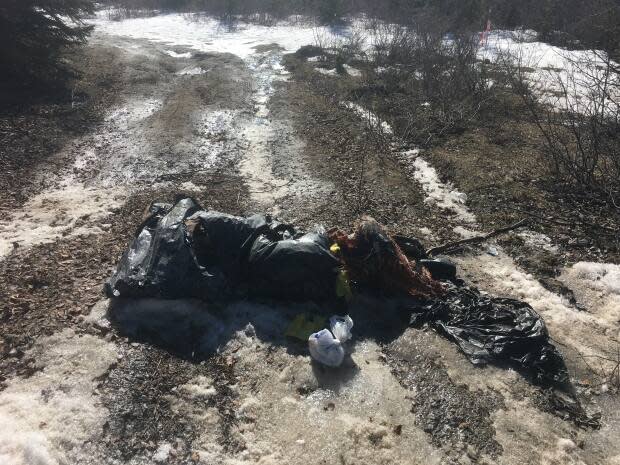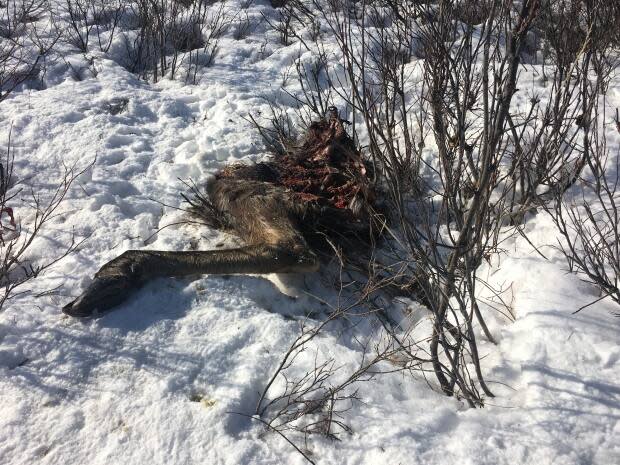Beaufort Delta region sees 5 incidents of improperly disposed meat in 2 weeks

As the Northwest Territories' Beaufort Delta region heads into geese hunting season, the Department of Environment and Natural Resources is reminding residents to dispose of meat properly.
This is after five reported incidents of improper disposal in Aklavik and Inuvik in the last two weeks.
"There were two instances in Inuvik. One was half of a hang-quarter [of moose] and the other one was two parts of caribou," said Ernie Francis, acting manager of wildlife and environment.
"Then Aklavik had a whole caribou and a front half, as well as a fox and a lynx."
Francis said wastage rules apply to all edible parts of big game animals such as caribou and moose.
He said non-edible parts are the head and any of the lower legs below the knee joint. In these cases, he said what was left around town could have been eaten, or shared to others.
"There's certain people who can't go out hunting or don't have the means to go out on the land to harvest caribou," said Francis.
"There's no limit on the amount of caribou that you can get from the Porcupine Caribou herd … there's still the fact that people have to respect the animals, utilize it and try not to let it go to waste."

He said people can donate the meat to organizations or give it away to residents. Francis said although sometimes "stuff happens," people should be able to call their local ENR officer, and make an appointment if they won't be able to use the meat and need help to dispose of it properly.
Residents would then have to fill out an application for a general wildlife permit, which will allow residents to dispose of spoiled meat.
"That permit is good for three or four days. You basically take that permit with you and all the spoiled meat … take it to the local landfill, and that person there will tell you where to dump it," said Francis.
The rules are especially important as the bears begin to wake up.
"If a bear gets in there and somebody is walking in that area, there may be a chance that the bear may be protecting its source of food and an altercation may come."
Francis also says those going geese hunting in the coming weeks should be mindful of how much freezer space they have, so they don't overhunt, and end up with more food they'll have to dispose of.

 Yahoo Finance
Yahoo Finance 